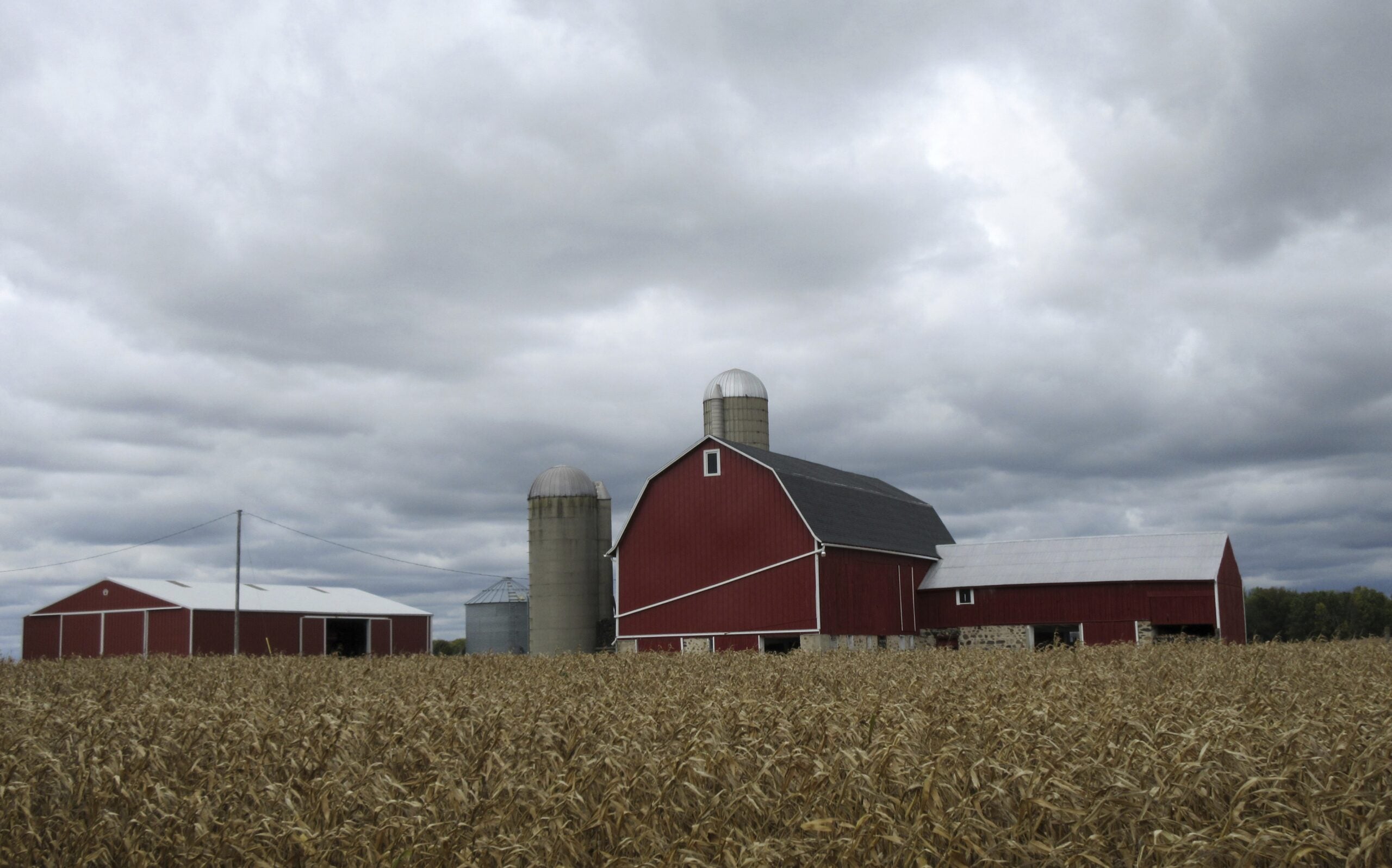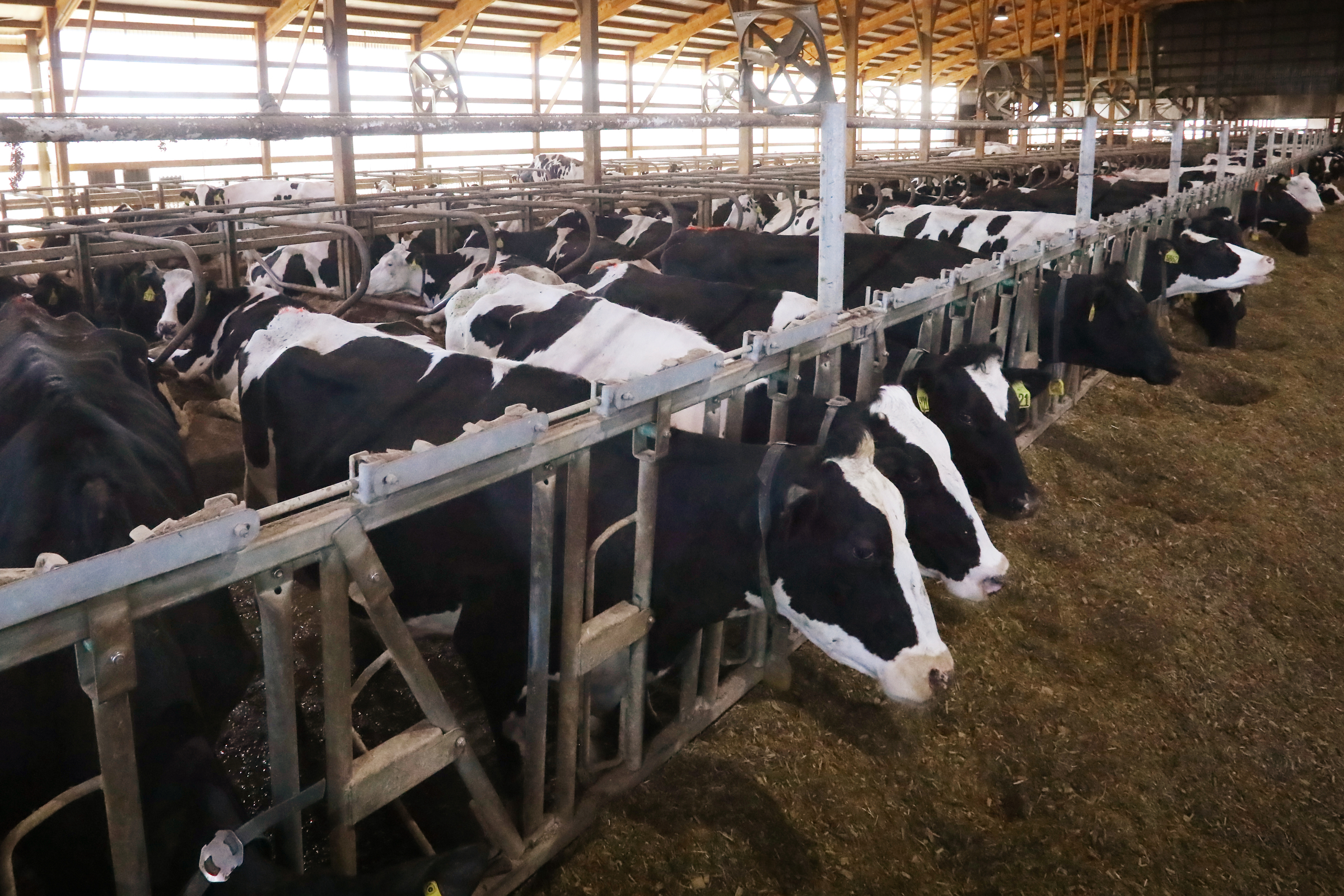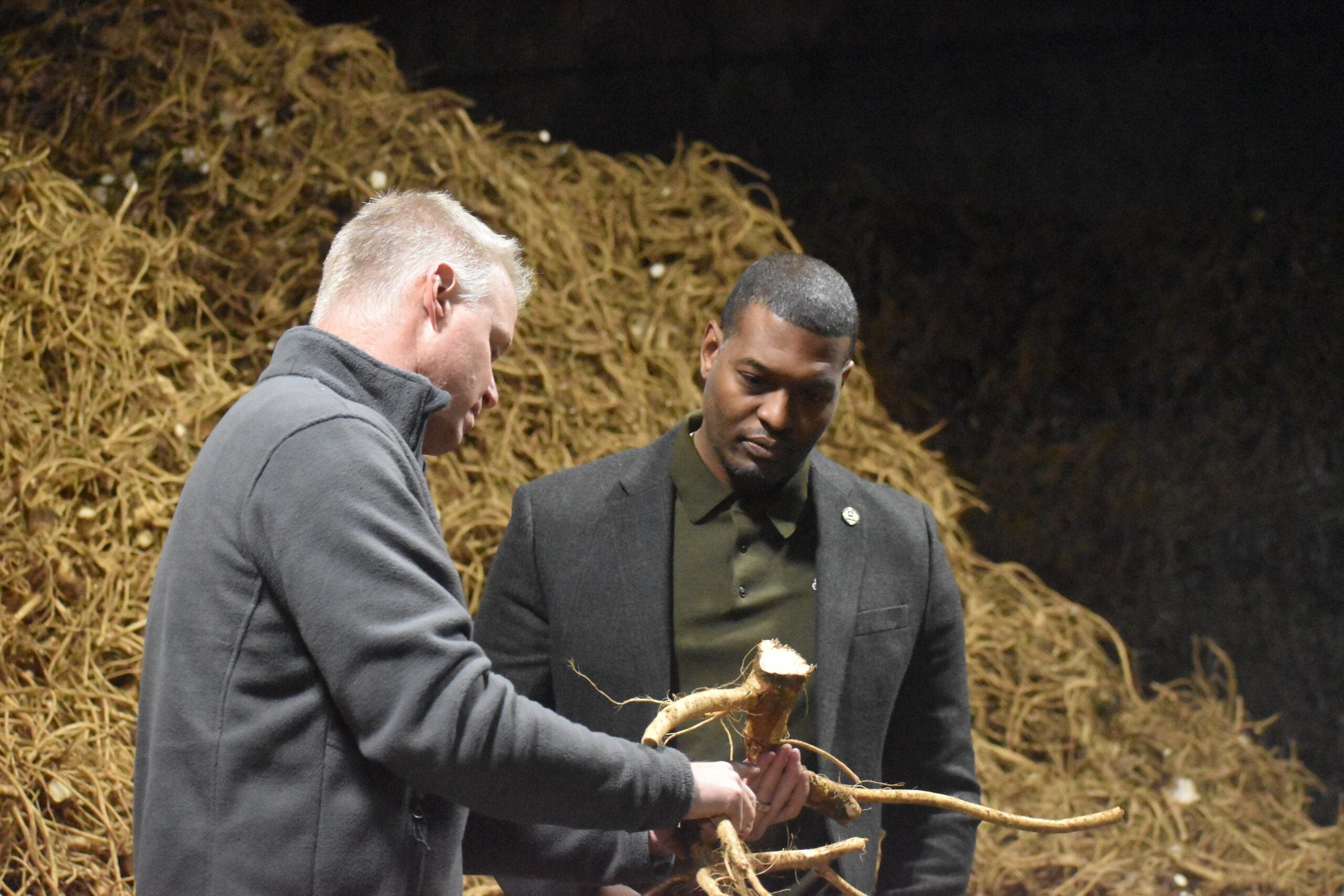Wisconsin farmers and counties are making do with fewer agriculture agents statewide. The head of the University of Wisconsin-Extension’s Cooperative Extension division said cuts to state funding are limiting their ability to meet local needs. However, some state and county officials argue the agency needs to better prioritize which positions should be filled.
Karl Martin, dean of Cooperative Extension, said they’re looking to fill 220 county educator positions statewide, which is down from about 250 jobs.
“That’s a reduction from where we were at last year and four years ago. We’ve taken a significant budget reduction of about $3.5 million in our state funding. As a result of that, we’re not able to meet the demands that are out there with our county partners,” said Martin. “Our goal is really to work with those county partners to try to find solutions to meet their needs locally.”
Stay informed on the latest news
Sign up for WPR’s email newsletter.
However, Art Carter, Green County Board chairman, said the agency has so far failed to meet his county’s need for a full-time agriculture agent. The county was told they would receive an agent by early June, but officials with Cooperative Extension has since said they would be unable to fill the position, according to Carter.
“It’s a very necessary function, especially now where ag is facing economic stress, especially dairy,” said Carter. “Green County has a lot of dairy.”
Figures from Cooperative Extension show the number of agriculture agents has dropped from 71 in fiscal year 2017 to 56 in fiscal year 2018 as of mid-April. Several more positions are in the hiring process. The agency historically had around $2.1 million in state and federal money to fund salaries for agriculture agents, but now they’re working with roughly $1.7 million.
“It’s not like we took all of our reduction out of our agriculture educators,” said Martin. “We really looked across all of our programming so there’s similar challenges occurring in other program areas as well.”
Martin added they’re examining opportunities to share agriculture agents between Green and Lafayette counties or Green and Dane counties. He said they’re also exploring ways to grow revenue or hire positions in collaboration with multiple counties to meet needs statewide.
“In a situation where we would not provide the service that we agreed to in our contract, we will definitely return all that unused money to the county partner,” said Martin.
State Rep. Todd Novak, R-Dodgeville, said Cooperative Extension is a valuable service to counties and he is opposed state funding cuts for the agency. However, he believed it could do more to work with counties.
“I think they need — UW-Extension needs to throw to these counties, ‘OK, we want to get you an agent. What do you think is the best way to do that and help us come up with an idea?’” said Novak. “I think that’s the best way to do it.”
Novak also highlighted that Green and Lafayette counties are among the top ag-producing counties in the state.
Carter said UW-Extension should have been more straightforward with Green County about their budget constraints, but he also criticized lawmakers who approved the cuts. Ideally, the county would like to see a full-time agriculture agent, but it’s willing to share an agent with nearby Lafayette County. Carter’s message for lawmakers is simple.
“We don’t care how you do it,” he said. “Just do it.”
Editor’s Note: Wisconsin Public Radio is a service of the UW-Extension and the Educational Communications Board.
Wisconsin Public Radio, © Copyright 2024, Board of Regents of the University of Wisconsin System and Wisconsin Educational Communications Board.






